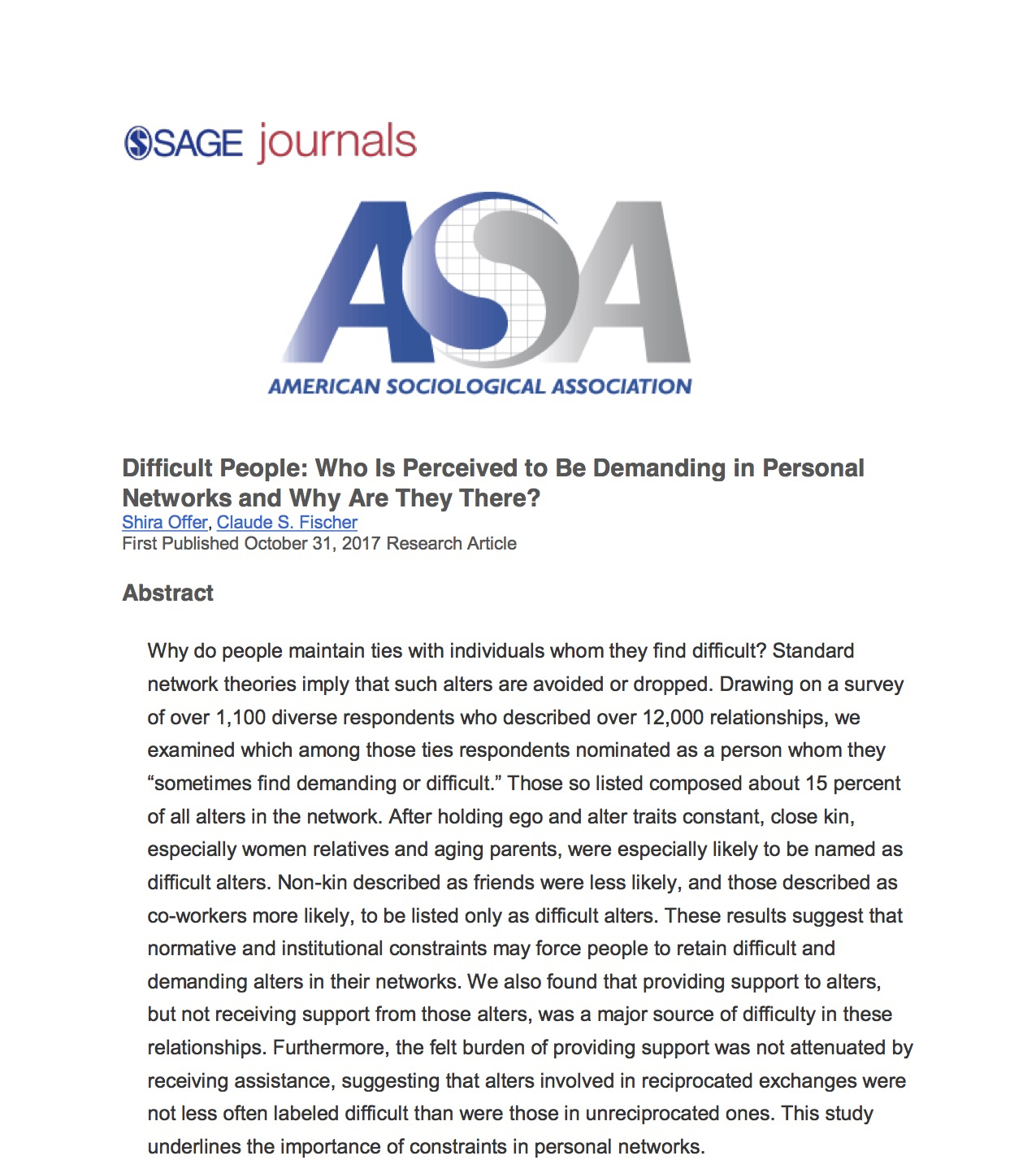
The Role of Difficult People and Energy Vampires in Our Lives
This article from the American Sociological Review discusses the role of difficult people in our lives. Why do we keep ties with difficult people? What role do they play in our lives? Why is is hard to set boundaries with them?
As a psychiatrist and an empath, I am fascinated by how the phenomena of empathy how and boundary setting works. I feel passionately that empathy is the medicine the world needs right now.
Empathy is when we reach our hearts out to others and put ourselves in their shoes. However, being an empath goes even farther. Like many of my patients and myself, empaths are people who’re high on the empathic spectrum and actually feel what is happening in others in their own bodies. As a result, empaths can have incredible compassion for people–but they often get exhausted from feeling “too much” unless they develop strategies to safeguard their sensitivities and develop healthy boundaries.
In my book The Empath’s Survival Guide I discuss different kinds of difficult people. Here is an example of how to set boundaries with 2 kinds of difficult people.
Control Freaks
Control freaks feel qualified to offer their unsolicited opinions such as, “You know what you should do…?” Then they proceed to tell you, whether or not you want to hear their advice. Or they continue to nitpick little things that you’re “doing wrong” such as, “You forgot to put the dishes away…again,” or “You really should learn to park better.” Empaths may take to heart a control freak’s disapproval, particularly if they lack self-confidence. So they end up feeling attacked, depressed, and tired. Remember, it has been said that opinion is the lowest form of knowledge as it requires no accountability and is subjective. Of course, it may be helpful to listen to “constructive criticism” to see if the comment does make sense. But in general, criticism–especially nitpicking or the ongoing kind–can be draining for empaths.
Protect Yourself from Control Freaks and Criticizers
- Be assertive, but don’t tell these types what to do. That will only make them defensive. Say to them, “I value your advice, but I want to think about how to approach this situation myself.”
- Politely ask the person to stop criticizing you. Be firm and non-emotional. Don’t play the victim.
- If you feel inadequate around a controller or criticizer, identify and begin to heal your low self- esteem issues that have been triggered. The more secure you feel, the less these vampires can hurt you.
The Non-Stop Talker
Nonstop talkers can drain the life force out of empaths with an endless verbal assault. These people grate on my nerves and sensitivities; I try to avoid them. They trap you and recount their life stories without even pausing for a breath. They don’t give you any openings to interrupt them. Then they move so close they intrude on your personal space. You take a few steps backward; they take a few steps forward. You can’t escape. There’s a joke that there needs to be a Twelve-Step recovery program for addictive talkers called, “On and on and on and on!”
Empaths are incredible listeners and make the mistake of tolerating chronic talkers far too long. Then they become exhausted. To protect themselves, empaths must address their tendency to be people pleasers. Everyone loves telling empaths their life stories because they’re so attentive. But with chronic talkers, you must learn to set boundaries, a basic form of self-care.
|
Protect Yourself from Non-Stop Talkers |
|


